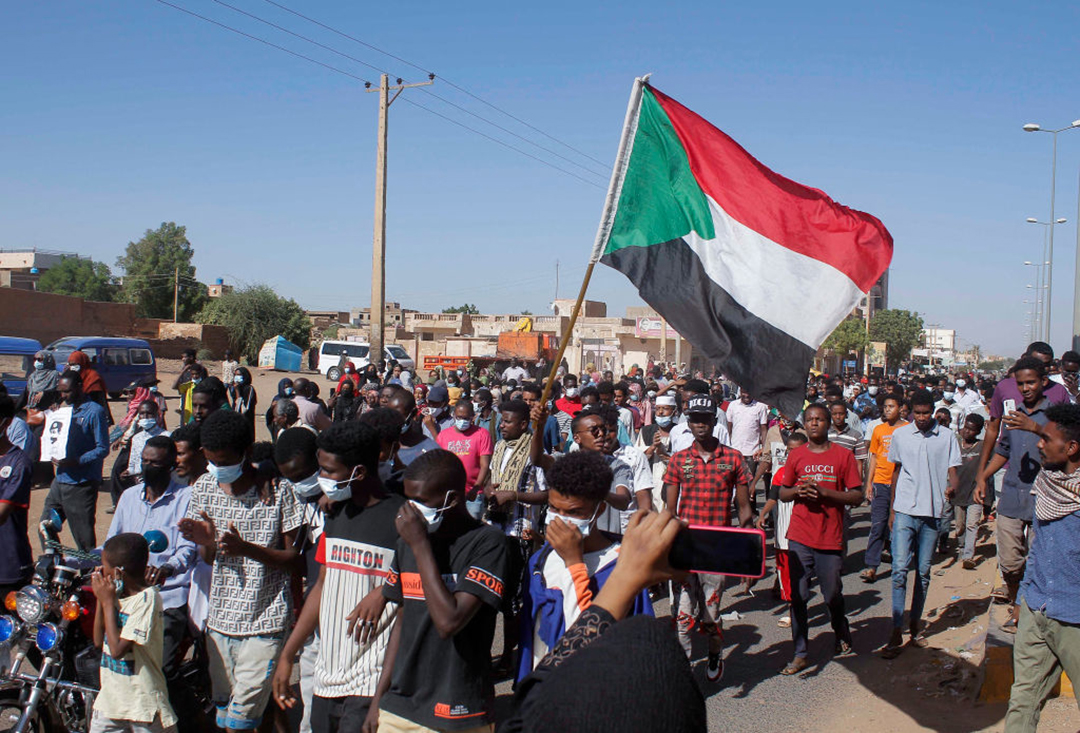Spate of Coups Has Observers Worried About Return to Bad Old Days
ADF STAFF
After two decades that saw steep drops in military coups, observers are worried they may be on the rise again in Africa.
This year in Sudan, Mali and Guinea, heads of state were removed from power, not at the ballot box, but at the barrel of a gun. This is a reversal of long-term declines in coup-making on the continent. The continent recorded 22 successful coups in the 1980s and 16 in the 1990s before domestic demands for good governance and international pressure led to a drop in coup-making. There were only eight successful coups between 2000 and 2009 and eight between 2010 and 2019.
Experts believe Africa’s recent upsurge in coups has been triggered by a variety of factors, including economic hardship, leaders’ abuse of power and the military’s desire to protect its own interests.
“Coups are not a specifically African problem [as seen with Myanmar this year], but they are an increasingly African problem,” Jonathan Powell, a professor at the University of Central Florida, told ADF. Powell’s Mutiny Monitor tracks coups around the world.
Powell’s research shows that African countries account for most of the world’s coups in any given year.
Powell said Mali, which saw coups in 2012, 2020 and this year, may have fallen into a “coup trap,” in which competing parts of the military stage a chain of coups on each other.
In Sudan, Gen. Abdel Fattah al-Burhan, then president of the country’s Sovereign Council, arrested Prime Minister Abdalla Hamdok and other civilian leaders at the end of October, just weeks before they were to assume control of the council. The council was established after the military, responding to popular protests, overthrew the decadeslong regime of Omar al-Bashir.
Al-Burhan restored Hamdok to his position on November 19, but protesters remained unsatisfied.
On Twitter, the Sudanese Professionals Association denounced the deal as “far from the aspirations of our people.”
The same protesters who fought al-Bashir are focusing their energy on al-Burhan.
“We reject the totalitarian state and military rule,” a member of a Sudanese resistance group told Vice News in mid-November. “And we only demand it pass to a civilian government.”
In many ways, Africa’s recent coups reflect a struggle between the continent’s exploding population of young people and its ruling old guard.
As in Sudan, young people are demanding accountability, transparency and an end to military involvement in the government. The ruling class, by comparison, wants to stick by the status quo, which often includes benefitting financially from its military and government ties.
The economic strain the COVID-19 pandemic has placed on many countries could lead to more coups on the continent, according to Kenyan Assistant Professor Mwita Chacha who teaches at the University of Birmingham.
“Assuming that recovery remains slow, then for those states that are vulnerable to coups — those that have in past experience coups, those that are seeing growing public discontentment with the incumbent’s leadership, and those where the incumbent is struggling to address the interest of the armed forces — are likely to experience the military’s intervention now and in the future,” Chacha told ADF.
Chacha added that weak responses by multinational organizations such as the United Nations and the Economic Community of West African States to leaders’ attempts to remain in power by manipulating their countries’ constitutions — as happened in Guinea — can lead to more coups as well.
Preventing or reversing coups requires countries to cooperate more closely on international sanctions against coup plotters to force them to relinquish power, he said.
“Enhanced coordination then becomes a potential means of discouraging illegal seizures of power,” Chacha said.
Such efforts struggle, however, if a major player fails to go along.
“I think a case can also be made that actors such as China, who do not put political conditions on economic assistance, could be contributing to the loss of any deterrent effect the international community has been able to create,” Powell said.
In the end, reducing Africa’s coups requires the military to accept a nonpolitical role subordinate to civilian leaders, said Chacha. It also requires those civilian leaders to provide basic services, encourage economic growth and honor the rule of law when it comes to things such as term limits.
“Under such conditions,” Chacha said, “motivations for coups, whether inspired by the public or the military’s own goals, become less likely to thrive.”


Democratic state are battling under pressure because democatric leaders are abusing their Democratic power.